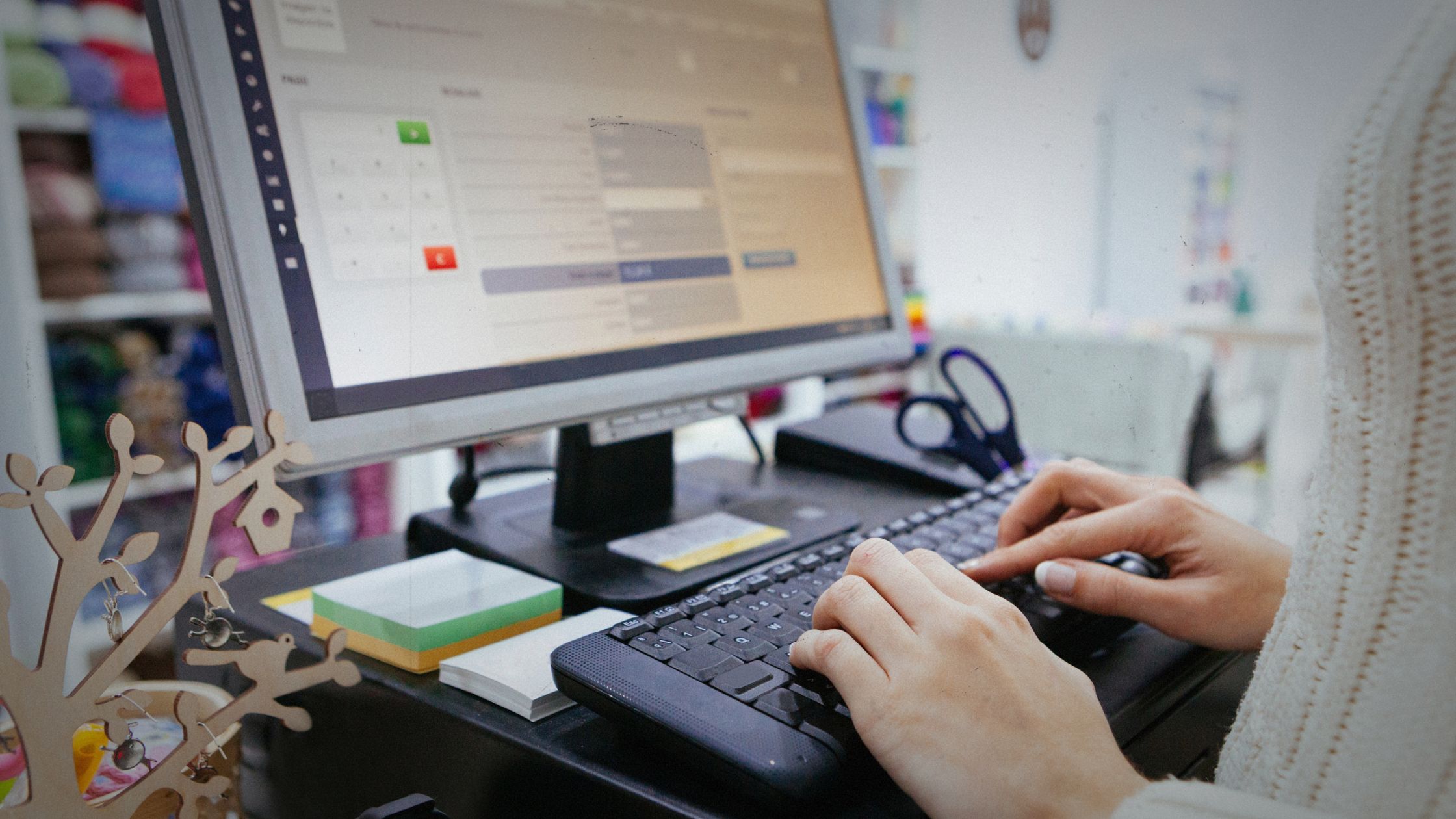Retailers use a variety of software solutions to effectively manage their operations and provide a smooth shopping experience for customers. Some of the most commonly used software in retail includes:
| Retail Software Types | Description |
|---|---|
| Point of Sale (POS) Software | Vital for transactions, payment processing, and sales tracking. Often includes inventory and CRM features. |
| Inventory Management Software | Tracks and controls stock, optimizes inventory levels, and enhances replenishment processes. Offers sales insights. |
| Customer Relationship Management (CRM) Software | Manages and analyzes customer interactions to boost service, retention, and sales. |
| E-commerce Platforms | Essential for online sales, showcasing products, processing orders, and managing shipping. |
| Analytics and Reporting Software | Identifies trends, evaluates sales, and aids decision-making. Offers insights into customer behavior and market trends. |
| Retail Accounting Software | Manages financial tasks like accounts, payroll, and ledger, streamlining processes and ensuring accuracy. |
Retail Software: Enhancing Efficiency and Customer Experience
Retail software refers to a variety of applications and tools that are specifically designed to meet the unique needs of retailers. These software solutions encompass a wide range of functions, including point of sale (POS) systems, inventory management, customer relationship management (CRM), e-commerce platforms, and back-end administrative tools. This comprehensive suite of software aims to streamline operations, improve efficiency, and enhance the overall customer experience. By employing retail software, businesses can effectively manage their sales, inventory, customer data, and organizational processes, thereby maximizing productivity and profitability.
One of the primary components of retail software is the POS system, which serves as the central hub for processing transactions, managing sales, and accepting various payment methods. These systems often include features such as barcode scanning, receipt printing, and integration with payment processors, providing retailers with a seamless and efficient checkout process. Furthermore, POS software can also offer insights into sales trends, customer purchasing behavior, and inventory levels, empowering retailers to make data-driven decisions for their business.
The Power of POS Systems in Retail
At the heart of retail software lies the POS system—a central hub for transaction processing, sales management, and payment acceptance. With features like barcode scanning and receipt printing, POS software streamlines the checkout process. Additionally, it provides valuable insights into sales trends, customer behavior, and inventory levels, enabling data-driven decision-making.
Benefits of Using Retail Software for Small Businesses

Retailers use a variety of software applications to streamline their operations and improve customer experience. Some of the commonly used retail software includes point of sale (POS) systems, inventory management software, customer relationship management (CRM) software, and e-commerce platforms.
Point of sale (POS) systems are crucial for processing transactions, managing sales, and accepting payments. These systems often include features such as barcode scanning, receipt printing, and integration with payment processors. Inventory management software helps retailers track and manage their stock levels, streamline supply chain operations, and prevent stockouts or overstock situations.
Customer relationship management (CRM) software is used to maintain customer data, manage interactions, and facilitate marketing and sales efforts. It helps retailers analyze customer behavior, preferences, and purchase history to provide personalized experiences and targeted promotions. Additionally, e-commerce platforms enable retailers to set up and manage online stores, process online orders, and integrate with other software for seamless operations.
Beyond these core systems, retailers also utilize analytics and reporting software to gain insights into sales performance, market trends, and customer behavior. These insights help retailers make informed decisions about pricing, promotions, and assortment planning.
Overall, the combination of these software solutions plays a crucial role in helping retailers operate efficiently, deliver exceptional customer service, and adapt to the ever-evolving retail landscape.
6 Types of Retail Software
Retail software is a type of software designed to assist retailers in managing various aspects of their business operations. It encompasses a wide range of applications that help streamline processes such as inventory management, sales tracking, customer relationship management, point-of-sale systems, and e-commerce integration.
1. Point-of-sale (POS) systems

Retail software, also known as point-of-sale (POS) software, is a type of application that assists retailers in managing various aspects of their business operations. It encompasses a wide range of functionalities such as inventory management, sales tracking, customer relationship management, and e-commerce integration.
2. Inventory management software
Inventory management software serves as the backbone of retail operations, providing a comprehensive solution for tracking sales, managing stock levels, and optimizing inventory orders. This robust software automates essential processes, offering the convenience of automated ordering, setting low-stock triggers for reorders, and scheduling alerts to address stockout or overstock situations efficiently. Furthermore, inventory management software offers the advantage of real-time sourcing price comparisons, a valuable tool for cost savings during market fluctuations.
3. Customer relationship management (CRM) software
Customer relationship management (CRM) software serves as a valuable tool for efficiently handling interactions with both your valued customers and potential prospects. This software equips you with capabilities to track customer purchasing behavior and deliver automated, personalized promotional content. The strategic collection of customer data plays a pivotal role in fostering customer retention and engagement, ensuring that your business maintains robust and enduring relationships with its clientele.
4. E-commerce Platforms
In the era of digital dominance, e-commerce software has emerged as a pivotal tool for businesses seeking to carve their niche in the online marketplace. These platforms empower companies to establish a robust digital storefront replete with fundamental features for online sales, encompassing website design, shopping cart functionality, payment processing, and efficient inventory management.
While traditional e-commerce software functions as standalone applications, advanced iterations adopt a modular architecture and utilize application programming interfaces (APIs) to seamlessly integrate with third-party systems. This heightened flexibility and adaptability grant businesses the capacity to tailor their online presence to align perfectly with their distinctive requirements and preferences.
5. Marketing automation software
Marketing automation software has transformed the landscape of marketing by streamlining various tasks and workflows. It provides businesses with the capability to effectively engage with both their existing customer base and potential prospects. This comprehensive toolset includes functionalities like email marketing, social media management, and lead generation.
Contemporary marketing software harnesses the power of data to deliver personalized marketing experiences to loyal customers and design precise campaigns for new target markets. These automated solutions offer valuable insights and analytics, encompassing key performance indicators (KPIs), returns on investment (ROIs), and the campaign’s influence on sales performance.
6. Retail software
Retail software plays a crucial role in helping retailers manage and streamline various aspects of their business operations. There are several types of retail software designed to cater to the diverse needs of the retail industry. One of the most widely used types of retail software is point-of-sale (POS) systems. POS software helps retailers manage inventory, track sales, and facilitate customer transactions. Additionally, payment processing software is essential for retailers to securely process various forms of payments, including credit cards, mobile payments, and online transactions.
Final Words
Retail software offers a range of tools and applications tailored to retailers’ needs. From point of sale (POS) systems for streamlined transactions to inventory management software optimizing stock levels, these solutions provide invaluable benefits. Customer relationship management (CRM) software fosters loyalty through personalized experiences, while e-commerce platforms open doors to online sales. Data-driven decision-making, facilitated by analytics and reporting software, empowers retailers to navigate the dynamic retail landscape effectively. Whether for small businesses or larger enterprises, the right retail software combination enhances efficiency and customer service, adapting to the evolving retail environment. Share your thoughts and insights in the comments below, contributing to the discussion shaping retail technology’s future.
Frequently Asked Questions
What is retail software?
Retail software refers to a comprehensive suite of applications and tools designed to meet the unique needs of retailers. These software solutions encompass various functions, including point of sale (POS) systems, inventory management, customer relationship management (CRM), e-commerce platforms, and back-end administrative tools. The primary aim of retail software is to streamline operations, enhance efficiency, and improve the overall customer experience. It enables businesses to effectively manage their sales, inventory, customer data, and organizational processes, ultimately maximizing productivity and profitability.
What is the significance of POS systems in retail software?
POS systems serve as the central hub within retail software for processing transactions, managing sales, and accepting various payment methods. They offer essential features such as barcode scanning, receipt printing, and integration with payment processors, ensuring a seamless and efficient checkout process for retailers. Additionally, POS software provides valuable insights into sales trends, customer purchasing behavior, and inventory levels, enabling data-driven decision-making to drive business success.
How does retail software improve transaction efficiency?
Retail software, especially POS systems, facilitates swift and accurate transaction processing, leading to an improved shopping experience for customers.
How does CRM software benefit small businesses in retail?
CRM software enables small businesses to build and nurture customer relationships, analyze customer behavior, and offer personalized experiences and targeted promotions, fostering customer loyalty.


